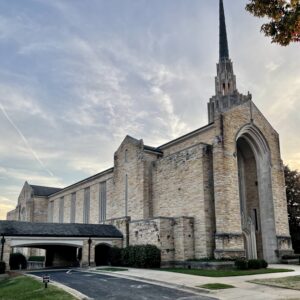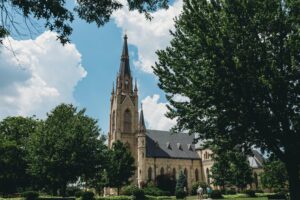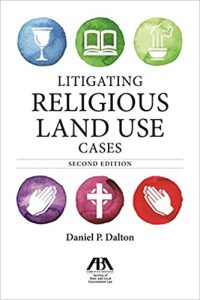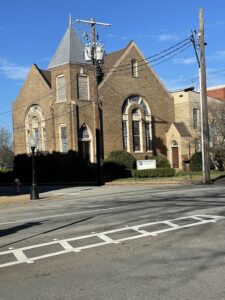
Daniel Dalton’s remarks on Touro Law School’s Constitution Day Program, September 17, 2024
Good afternoon. Thank you for inviting me to speak with you today. I have been asked to provide my remarks outlining the laws Congress passed


Good afternoon. Thank you for inviting me to speak with you today. I have been asked to provide my remarks outlining the laws Congress passed

The Religious Land Use and Institutionalized Persons Act (RLUIPA) provides vital protections for religious institutions facing discriminatory or unduly burdensome land use regulations. But what happens if a religious institution believes its RLUIPA rights have been violated? What kind of relief can they seek? In this blog post, we’ll explore the various remedies available to those who successfully bring a RLUIPA land use claim.

The Atlantic Magazine profiled the case of North Jersey Vineyard v. City of South Hackensack, New Jersey, a case that I litigated where the Court applied the Religious Land Use and Institutionalized Persons Act (RLUIPA), to an land use decision of a local community that barred a church from using a building it purchased in an area zoned for religious use, that ultimately resulted in a difficult years long lawsuit.

The Religious Land Use and Institutionalized Persons Act (RLUIPA) protects the right of religious organizations to practice their faith without undue government interference. A key concept within RLUIPA is the idea of a “substantial burden” on religious exercise. This blog post unpacks what this term means and how it impacts religious institutions and land-use regulations.

On March 19, 2024, Daniel Dalton will be speaking at the United States Department of Justice Roundtable Conference in Orange, California at Chapman University School of Law about the often-complex topic of land use and zoning. Specifically, my focus will be on the Religious Land Use and Institutionalized Persons Act (RLUIPA), a federal law that impacts the development of religious institutions and the rights of institutionalized persons.

A governmental entity has a very limited role when it comes to determining if a plaintiff is “religious enough,” or engaged in “religious activity,” for purposes of RLUIPA
The Western Apaches have long worshipped at a sacred site called Oak Flat in Arizona. Despite the sacredness of the site and centrality of Oak
Court order allows Pass-A-Grille Beach Community Church to Continue Offering Free Parking to the Public. A federal court in Tampa has entered a preliminary injunction
This Tuesday, September 22, 2020, will be the 20th anniversary of President Bill Clinton signing into law the Religious Land Use and Institutionalized Persons Act, also
Prohibiting Sunday church services—even when attendees remain in their cars—is “beyond all reason, unconstitutional,” a federal judge exclaims in Kentucky. By now, we are all
Problem Solvers for Religious and Nonprofit Organizations, Property Owners, and Businesses.
Do you have a question? We would love to hear from you. Click the button below and we’ll get in touch with you shortly.
Please note that this website may be considered attorney advertising in some states. Prior results described on this site do not guarantee similar outcomes in future cases or transactions.